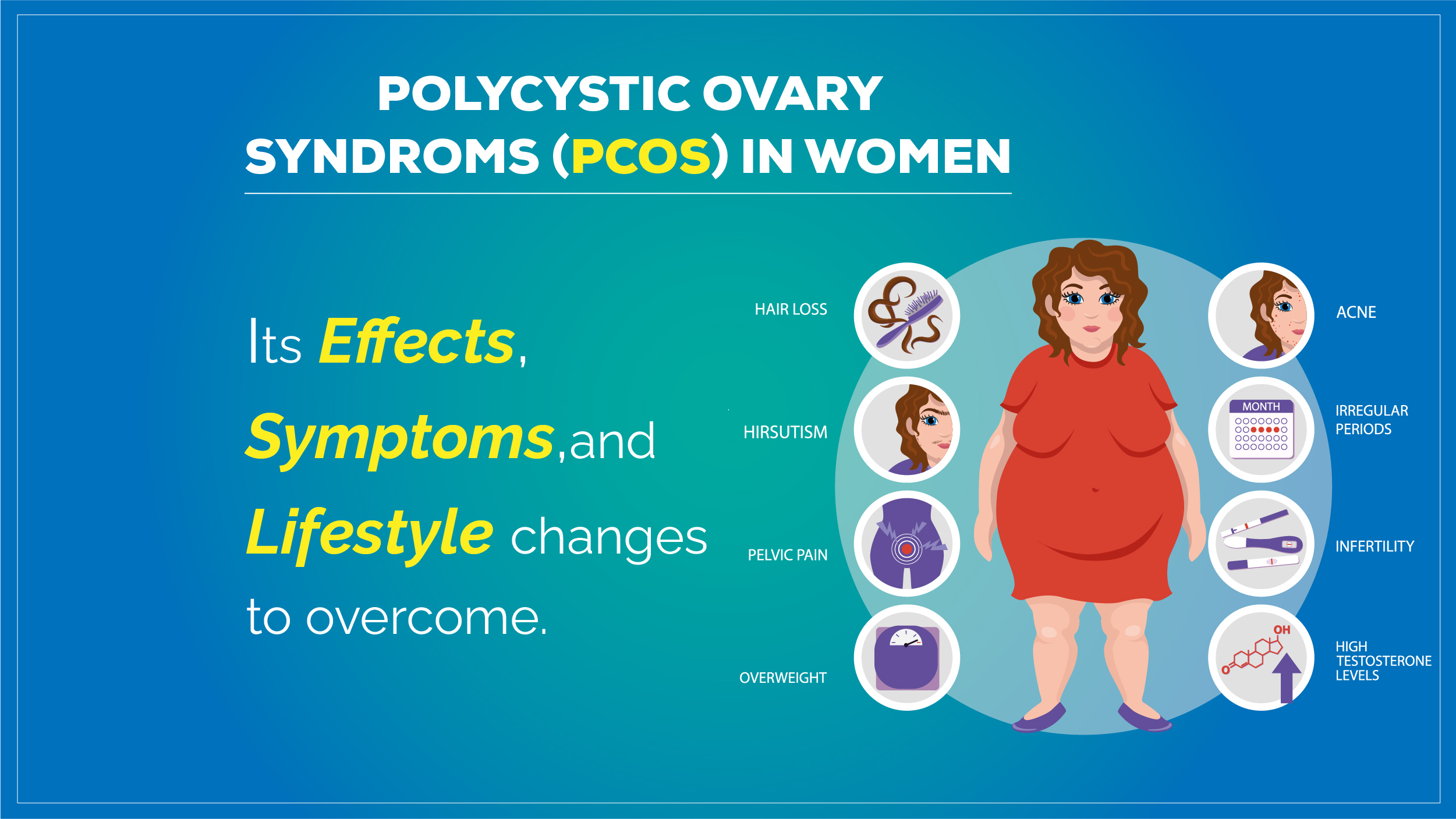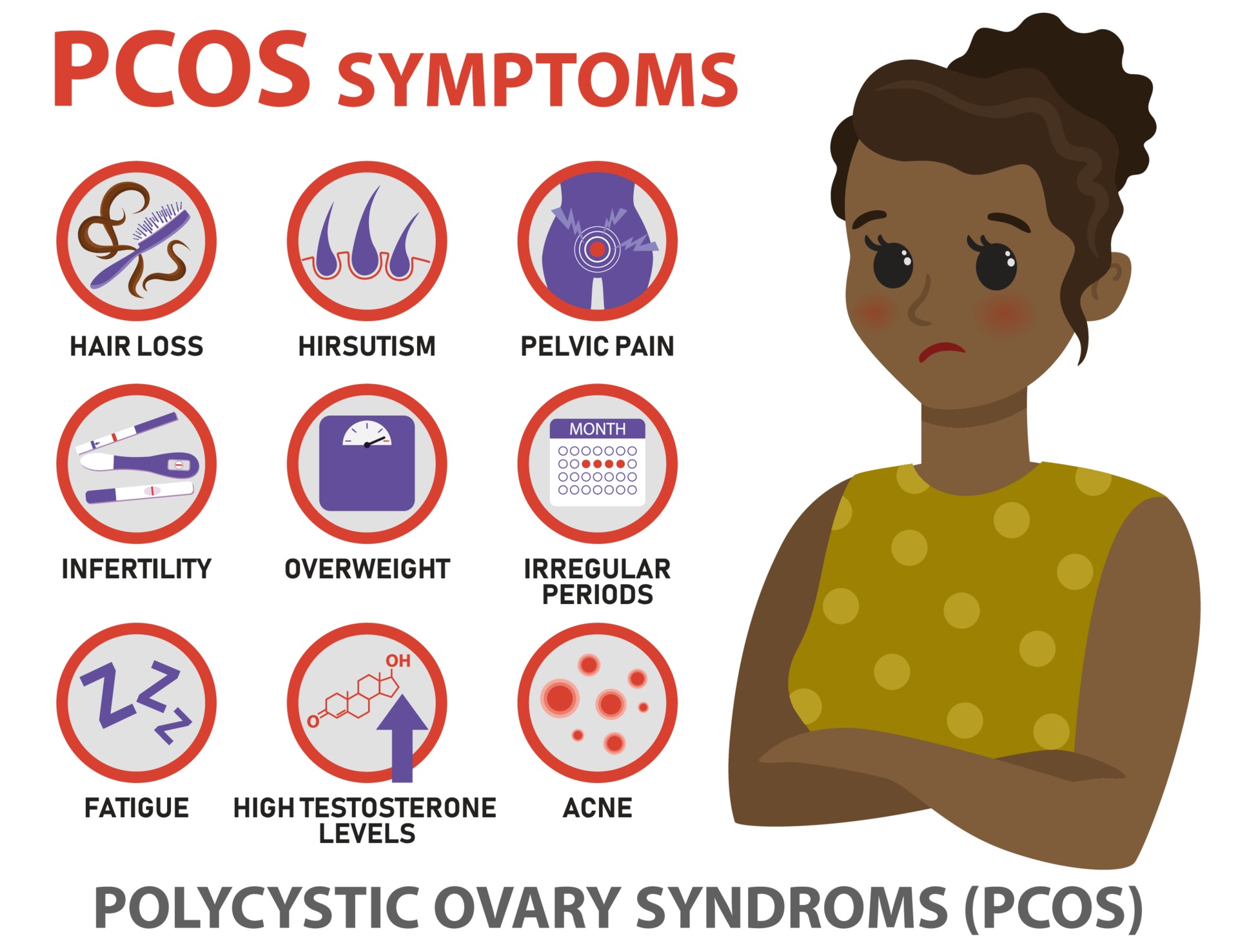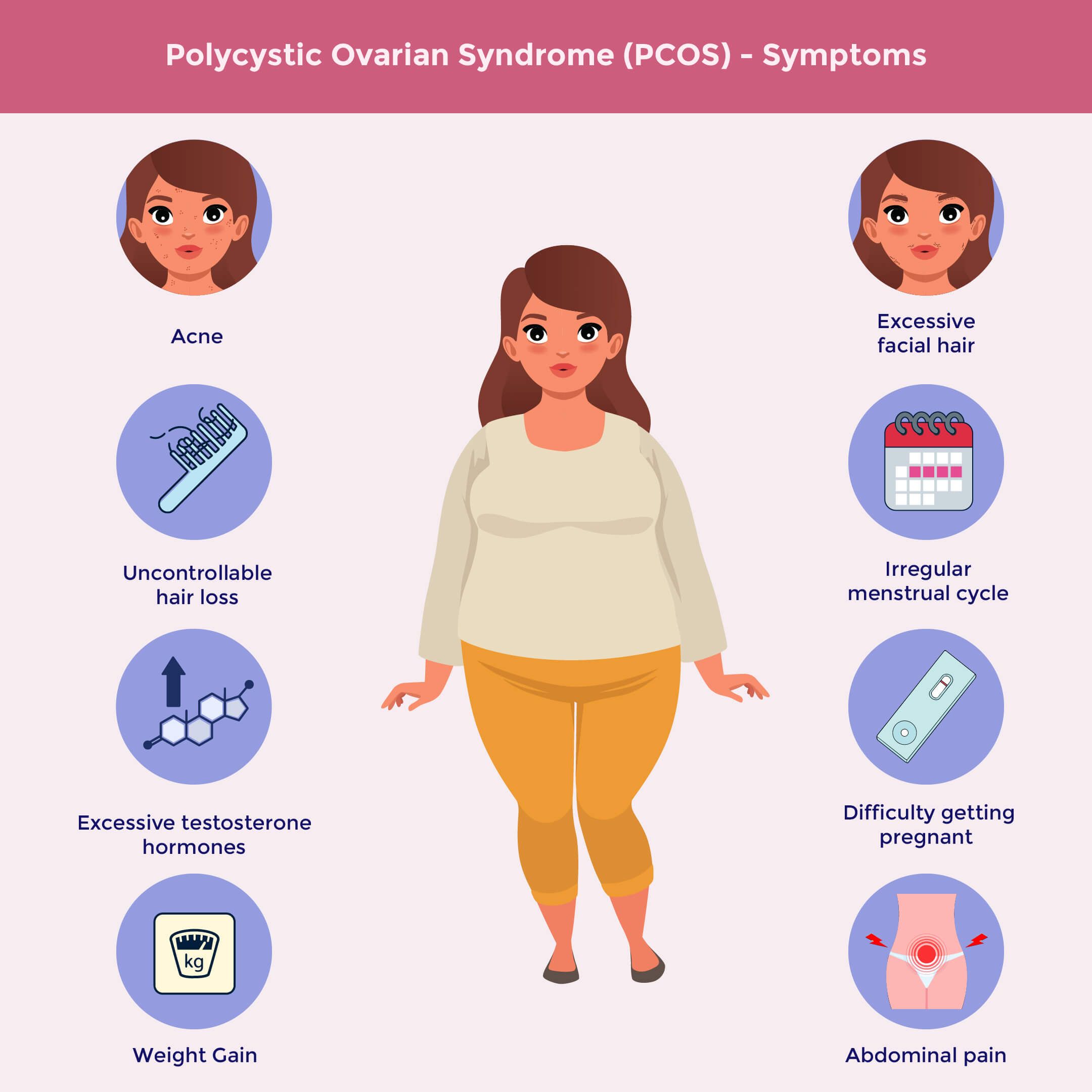PCOS Women: A Comprehensive Guide To Understanding, Managing, And Thriving
Hey there, beautiful soul! If you're here, chances are you or someone close to you is dealing with PCOS. Let’s break it down because knowledge is power, and we’re all about empowering you, girl. PCOS—or Polycystic Ovary Syndrome—can feel like a whirlwind of emotions, symptoms, and questions. But don’t worry, we’ve got your back. This guide is your one-stop-shop for everything PCOS-related. So grab a cup of tea, get comfy, and let’s dive in!
PCOS women often find themselves navigating uncharted waters when it comes to health, fertility, and overall well-being. The journey can be tough, but it’s not impossible to manage. We’re here to demystify the condition, give you actionable tips, and help you reclaim your life. You’re not alone, and we’re here to remind you of that.
Now, before we get into the nitty-gritty, let’s set the tone. This isn’t just another boring article filled with medical jargon. We’re keeping it real, conversational, and relatable because, hey, life’s too short for stiff, formal content. So buckle up, and let’s chat about PCOS women and how we can turn challenges into triumphs.
- Marcell Johnson The Rising Star Whos Making Waves In The Music Industry
- Unveiling Ally Lewber The Rising Star In The Spotlight
What Exactly is PCOS?
Alright, first things first—what the heck is PCOS? Picture this: your ovaries are like little factories producing hormones. But when PCOS comes into play, those factories start acting a bit wonky. PCOS is a hormonal disorder that affects women of reproductive age, and it’s more common than you might think. In fact, it’s estimated that 1 in 10 women worldwide have PCOS.
Here’s the kicker: PCOS isn’t just one thing. It’s a syndrome, meaning it’s a collection of symptoms that can vary from person to person. Some women experience irregular periods, others deal with unwanted hair growth, and some might struggle with fertility issues. It’s like a grab bag of symptoms, but don’t worry—we’ll break it all down.
Common Symptoms of PCOS
Let’s talk symptoms, shall we? PCOS women often experience a range of signs that can affect both physical and mental health. Here’s what you might be dealing with:
- Erin Jobs The Powerhouse Behind Apples Success
- Carl Apfel The Man Who Revolutionized Modern Agriculture
- Irregular periods—sometimes they come, sometimes they don’t. It’s like playing roulette with your cycle.
- Hormonal imbalances that can lead to acne, excess hair growth, or even hair loss.
- Weight gain or difficulty losing weight, which can be frustrating as heck.
- Insulin resistance, which is like your body saying, “Nope, not gonna process sugar like it should.”
- Fertility challenges that can make the dream of motherhood feel a bit distant.
And let’s not forget the emotional side of things. Dealing with PCOS can take a toll on your mental health, so it’s important to address both the physical and emotional aspects. We’ve got you covered on that front too.
Diagnosing PCOS: The Road to Answers
Getting a proper diagnosis can feel like solving a puzzle, but it’s a crucial step in managing PCOS. Doctors typically use a combination of methods to diagnose PCOS women, including:
- Medical history: They’ll ask about your symptoms, family history, and lifestyle.
- Physical exam: This might involve checking for signs of hormonal imbalance, like excess hair growth or acne.
- Ultrasound: Sometimes they’ll use an ultrasound to check for ovarian cysts, though not all women with PCOS have visible cysts.
- Blood tests: These can help measure hormone levels and check for insulin resistance.
Remember, getting diagnosed is the first step toward taking control of your health. It might take some time, but trust the process.
Living with PCOS: Lifestyle Changes That Matter
Once you’ve got a diagnosis, the next step is figuring out how to manage PCOS. Lifestyle changes can make a huge difference, and they’re often the first line of defense. Here’s what you can do:
- Diet: Focus on a balanced diet rich in whole foods, lean proteins, and healthy fats. Cutting back on processed sugars can help with insulin resistance.
- Exercise: Regular physical activity is a game-changer. It helps regulate hormones, manage weight, and boost your mood.
- Stress management: Stress can exacerbate PCOS symptoms, so finding healthy ways to cope—like meditation or yoga—is essential.
Small changes can lead to big results, so don’t feel like you have to overhaul your entire life overnight. Start small, and build from there.
Treatment Options for PCOS Women
Now, let’s talk about treatment. There’s no one-size-fits-all solution when it comes to managing PCOS, but there are plenty of options to explore:
- Medications: Birth control pills, metformin, and other hormonal treatments can help regulate periods and manage symptoms.
- Fertility treatments: If you’re trying to conceive, there are options like Clomid or IVF that can help.
- Hormonal therapies: These can help address specific symptoms like acne or excess hair growth.
It’s important to work closely with your healthcare provider to find the right treatment plan for you. Everyone’s body is different, so what works for one person might not work for another.
Long-Term Management of PCOS
Managing PCOS isn’t just about short-term fixes; it’s about creating a long-term plan for your health. This might involve regular check-ins with your doctor, monitoring your symptoms, and adjusting your lifestyle as needed. Remember, PCOS is a lifelong condition, but that doesn’t mean it has to control your life.
PCOS and Mental Health: The Emotional Side
Let’s not forget about the emotional toll PCOS can take. Dealing with hormonal imbalances, fertility issues, and other symptoms can lead to anxiety, depression, and even body image struggles. It’s important to prioritize your mental health just as much as your physical health.
Here are some tips for taking care of your mental well-being:
- Talk to someone—a therapist, counselor, or even a trusted friend or family member.
- Join a support group, either in person or online. Connecting with other PCOS women can be incredibly validating.
- Practice self-care regularly. Whether it’s taking a bubble bath, reading a good book, or going for a walk, do something that makes you feel good.
Remember, it’s okay to not be okay sometimes. The key is to reach out for help when you need it.
PCOS and Fertility: Navigating the Journey
For many PCOS women, fertility is a big concern. The good news is that while PCOS can affect fertility, it doesn’t mean you can’t have children. With the right treatment and support, many women with PCOS go on to have healthy pregnancies.
Here are some fertility-friendly tips:
- Track your ovulation cycles to identify your most fertile days.
- Consider working with a fertility specialist if you’re struggling to conceive.
- Stay positive and patient. The journey might take time, but it’s worth it.
And remember, there’s no shame in seeking help. Whether it’s medication, IVF, or other treatments, you deserve to have the family you dream of.
Understanding Your Fertility Options
When it comes to fertility, knowledge is power. Understanding your options can help you make informed decisions about your reproductive health. Talk to your doctor about the latest advancements in fertility treatments and how they might apply to your situation.
Nutrition and PCOS: Fueling Your Body
Nutrition plays a huge role in managing PCOS. What you eat can impact your hormones, insulin levels, and overall health. Here are some nutrition tips for PCOS women:
- Focus on anti-inflammatory foods like leafy greens, berries, and fatty fish.
- Limit processed foods and sugary drinks that can spike insulin levels.
- Include plenty of fiber in your diet to help regulate blood sugar.
Remember, eating well isn’t about deprivation—it’s about nourishing your body with the nutrients it needs to thrive.
Exercise and PCOS: Moving Your Way to Better Health
Exercise is another powerful tool in managing PCOS. It doesn’t have to be intense or complicated—just moving your body regularly can make a big difference. Here’s how:
- Find an activity you enjoy, whether it’s walking, dancing, or yoga.
- Aim for at least 30 minutes of exercise most days of the week.
- Don’t forget strength training, which can help build muscle and improve insulin sensitivity.
Exercise isn’t just about physical health—it’s also great for your mental well-being. So get moving and feel the benefits!
Creating a Balanced Exercise Routine
A balanced exercise routine is key to managing PCOS. It’s about finding what works for you and sticking with it. Whether you’re a gym enthusiast or prefer outdoor activities, the important thing is to keep moving.
Support Systems for PCOS Women
Having a strong support system is crucial when dealing with PCOS. Surround yourself with people who understand and uplift you. This might include:
- Friends and family who are there for you through thick and thin.
- Support groups, both online and offline, where you can connect with other PCOS women.
- Healthcare providers who listen to your concerns and offer personalized care.
Remember, you don’t have to go through this alone. There’s a whole community of women who get it and are here to support you.
Kesimpulan
PCOS women, you’ve got this! Armed with knowledge, support, and the right strategies, you can manage PCOS and live your best life. Whether it’s through lifestyle changes, medical treatments, or simply prioritizing your mental health, there are plenty of ways to thrive despite the challenges.
So here’s what we’ve learned: PCOS is a complex condition, but it’s not something you have to face alone. By understanding your symptoms, seeking proper diagnosis, and implementing effective management strategies, you can take control of your health. And don’t forget to lean on your support system when you need it.
Now, it’s your turn! Share this article with someone who might benefit from it, leave a comment with your thoughts, or check out our other articles for more insights. Together, we’re building a community of empowered women who refuse to let PCOS define us. You’re amazing, and we’re here to remind you of that every step of the way.
Table of Contents
- What Exactly is PCOS?
- Common Symptoms of PCOS
- Diagnosing PCOS: The Road to Answers
- Living with PCOS: Lifestyle Changes That Matter
- Treatment Options for PCOS Women
- Long-Term Management of PCOS
- PCOS and Mental Health: The Emotional Side
- PCOS and Fertility: Navigating the Journey
- Nutrition and PCOS: Fueling Your Body
- Exercise and PCOS: Moving Your Way to Better Health
- Support Systems for PCOS Women



Detail Author:
- Name : Brock Kulas
- Username : ggottlieb
- Email : qprohaska@reilly.com
- Birthdate : 1986-06-13
- Address : 1975 Miller Road Suite 769 Cleomouth, TX 64664-8730
- Phone : 1-808-662-9057
- Company : Thompson, Predovic and Graham
- Job : Geological Sample Test Technician
- Bio : Perspiciatis dolores quae quam minima. Numquam quae nisi voluptatem fuga minima veniam. Unde dolor nisi occaecati dignissimos.
Socials
twitter:
- url : https://twitter.com/niko.heidenreich
- username : niko.heidenreich
- bio : Amet quae doloremque id dolor. Nostrum magnam officiis ducimus necessitatibus illo. Eos eos accusamus ad similique ratione et. Qui fuga unde omnis.
- followers : 1849
- following : 2209
linkedin:
- url : https://linkedin.com/in/niko_heidenreich
- username : niko_heidenreich
- bio : Ipsa et cum aliquid architecto dolorem officia.
- followers : 596
- following : 831